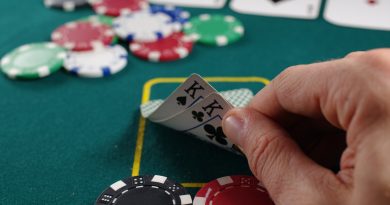Gamblers in Recovery: Steps to Rebuilding Your Life
Gamblers in Recovery: Steps to Rebuilding Your Life
Gambling addiction is a challenging journey, but recovery is possible. Whether you’ve just realized you need help or are months into your healing process, this post is for you. The road to recovery from gambling addiction is not easy, but with the right steps, support, and mindset, you can rebuild your life and regain control.

Acknowledging the Problem
The first and often hardest step is recognizing that gambling has taken control of your life. Maybe you’ve noticed the mounting debts, the strain on your relationships, or the sleepless nights spent chasing losses. Admitting that gambling is no longer “just for fun” is a pivotal moment in recovery.
Many people in recovery report that acknowledging their addiction allowed them to see their life through a different lens—one that prioritizes well-being and mental health over the fleeting highs of gambling.
Building a Support System
No one should go through recovery alone. Support from others can make the process more manageable and sustainable. Here are some key elements to building your support network:
- Gamblers Anonymous: A community of people who understand your struggles and offer a safe space to share your experiences.
- Therapists and Counselors: Professionals can help you address underlying issues that may have contributed to your gambling behavior, such as stress, anxiety, or trauma.
- Trusted Friends and Family: Confiding in loved ones can offer emotional support and accountability. It’s important to rebuild trust and lean on those who want to see you succeed.
Surrounding yourself with people who encourage your recovery will provide strength during challenging times.
Developing Coping Mechanisms
One of the key challenges in recovery is dealing with the cravings and urges to gamble. The temptation can be strong, but finding alternative ways to cope can keep you on track. Here are some methods to manage those urges:
- Mindfulness and Meditation: Practices like deep breathing and meditation can help you center yourself when cravings arise.
- Exercise: Physical activity not only reduces stress but also helps in releasing dopamine, which can mimic the high you once got from gambling.
- New Hobbies: Engaging in new activities can fill the time and mental space that gambling once occupied. Consider activities like reading, painting, or hiking.
The key is to replace the emotional and mental pull of gambling with healthier, more fulfilling habits.
Financial Recovery: A Crucial Step
Gambling can lead to financial turmoil. Regaining financial stability is a major part of recovery. Start by assessing the damage and creating a plan:
- Assess Your Situation: Calculate how much debt you’ve accumulated from gambling. Write down every loan, credit card debt, or outstanding payment.
- Create a Budget: Make a realistic budget that includes essential expenses like housing, utilities, and food. Cut unnecessary costs and avoid temptations that may lead back to gambling.
- Seek Financial Counseling: A financial advisor or credit counselor can help you navigate debt repayment and rebuild your financial future.
Remember, financial recovery takes time, but small steps lead to big progress.
Celebrating Small Victories
In recovery, every small win counts. Whether it’s going a day without gambling, attending a meeting, or saving money instead of spending it on bets, celebrate these achievements. Recovery isn’t a linear process, and there may be setbacks along the way, but acknowledging your progress keeps you motivated.
Each day free from gambling is a victory in itself.
Avoiding Relapse
Relapse can happen, but it’s important to view it as part of the recovery process rather than a failure. Here are some strategies to prevent relapse:
- Identify Triggers: Recognize what situations or emotions lead you to gamble, and avoid or manage them. Triggers could be stress, boredom, or financial pressures.
- Stay Connected: Regularly attend support group meetings and keep in touch with your recovery community.
- Set Boundaries: Limit your access to money and gambling environments. Self-exclusion programs, gambling-blocking apps, and giving financial control to a trusted person can help.
Preventing relapse is about creating strong barriers and staying vigilant.
Moving Forward
The journey of recovery isn’t just about stopping gambling—it’s about building a meaningful, fulfilling life beyond addiction. Rediscover old passions, pursue new interests, and reconnect with loved ones. Your identity is more than your past with gambling, and each step forward brings you closer to the life you deserve.
If you’re struggling, know that you’re not alone. Support is out there, and recovery is possible for everyone.
Resources for Help:
- National Problem Gambling Helpline: 1-800-522-4700
- Gamblers Anonymous: [website link]
- Crisis Text Line: Text HOME to 741741
Start your journey today, and remember that rebuilding your life, one step at a time, is both possible and worth it.
This post is a reflection of personal experiences and should not replace professional advice. Seek help from qualified counselors and support groups for tailored guidance in your recovery.



